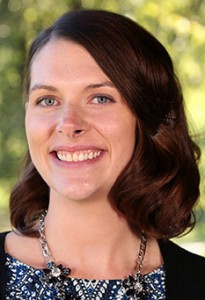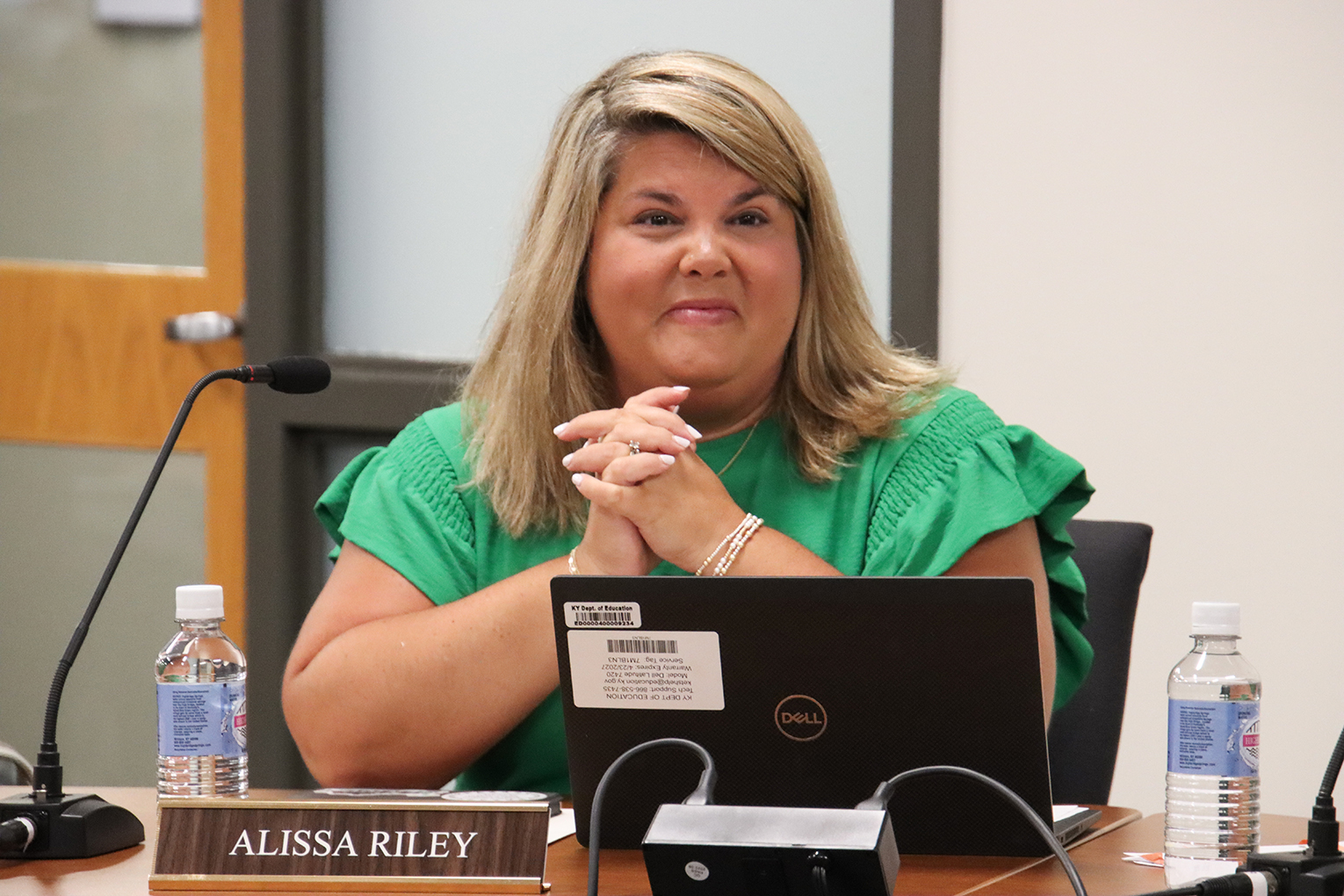
Ashley Lamb-Sinclair
By Ashley Lamb-Sinclair
ashley.lambsinclair@oldham.kyschools.us
I stood in the henna tattoo line with my 4-year-old at a local festival listening to the high school girls behind me debate the merits of getting a zodiac symbol or a Chinese character. I chuckled to myself as I eavesdropped, having become very wise to teenage psychology over the past decade as a middle and high school teacher. Then something amazing happened.
One of the girls’ teachers walked by holding hands with her boyfriend. She screeched, “Here comes my teacher!” I couldn’t help but turn to look myself, and I watched as the teacher smiled kindly and waved, and the girl turned back to her friend to gossip.
“Isn’t she pretty?”
“That’s my social studies teacher.”
“She just got engaged. She told us all about it.”
Then she pulled out her cellphone and called a friend, who was presumably also at the festival. “Hey, if you see a tall woman with red hair holding hands with a tall guy, that’s my teacher.”
I waited for the inevitable discussion about the teacher’s private life. But what I really wanted to hear is what all teachers want to hear, I just love her class. She has taught me so much.
Yet neither topic arose, to my surprise. The entire time we were in line – it was a long line – the girl kept bringing the teacher up in conversation. She wondered where she was, she kept thinking she saw her coming back toward her, and she wondered if her other friends had also spotted her.
This was a fascinating experience for me to be a fly on the wall as students discussed their teachers in a social setting. We all wonder what impact we have on students when we’re not around. The fact that the student never brought up the teacher’s work in the classroom led me to a surprising conclusion: The influence teachers have in the classroom is mostly about who we are, rather than what we do.
Teachers are larger than life to students – and good, bad or ugly – they are fascinated by us. We are the face of education for them and their entire attitudes about school lay in our hands.
Now, as I end my tenure as Kentucky’s Teacher of the Year, I realize that even in 10 years of teaching, I never really understood my influence as an educator. But having worked with people at the Kentucky Department of Education, state legislators, national education organizations and even a conversation or two with Secretary of Education John King, I have a very clear understanding now that, as my dear friend and colleague Brad Clark of Hope Street Group often says, “There is a big difference between leadership as positional power and leadership as influence.”
As teachers, we can often feel as if we are not masters of our own or our students’ fates. Yet, the teenage girls I overheard at the festival didn’t discuss the teacher’s lessons or the policies the teacher was required to implement. They talked about her. They admired her as a person, and to them, she was so influential that they were willing to start a lookout chain just to spot her. She was literally like a celebrity to them.
And she probably had no idea that it was happening.
Here’s probably what happened next: She prepared her lesson plans later that weekend, maybe caught up on some grading. She went to school on Monday, saw those same students who probably smiled and said hello. She taught her lessons, gave some encouragement and even some reprimands. She went home after school and worried about those words of encouragement, the reprimands, the implementation of the lessons she so thoughtfully constructed and the products the students had turned in that week. She worried whether they got it, whether she was effective, whether she mattered.
Then she went to a meeting and someone gave her a task to do, a hoop to jump through, another worry to add to her list. At some point in the week, she felt overwhelmed, stressed and tired. Maybe she even wondered if she had any positive impact at all, never once knowing the influence she wielded over those students at the festival. Never once recognizing that she was the person with the true power, the one who stood in front of kids every day and was the face of education for them.
Having been blessed with the opportunity this past year to get a 30,000-foot view of education, I now see what that teacher can’t see. I see that if every teacher woke up to the awesome influence he or she bears on the educational system at large, there would be a drastic overhaul in how the system operates. Someone said to me recently, “It’s really easy to get caught up in the hierarchy of education,” and I agree. But if we change the way we view the system, it becomes less of a hierarchy and more of community.
For example, while listening to Secretary King speak at a conference in Washington, D.C., he said something that contradicted my own experiences in my classroom. Before this year, I would have made a snarky comment to my colleagues, maybe sent a text complaining about it and moved on feeling just a little bit more frustrated with the educational system.
But I recognized that I was the teacher in the classroom – the topic of which he spoke –while he was not. So after the speech, when he made his rounds speaking to the educators in the audience, I told him what I thought. I told him stories from my classroom and how the policies he discussed impacted my students. He listened, asked questions and gave me his email address to follow up with him on the topic later.
I realized then that he might think twice when speaking on the issue next time. He might take the time to ask other teachers in similar situations what they thought about the issue. I viewed him as a member of the education community, rather than someone at the top of the chain who wouldn’t appreciate my expertise. And most importantly, I recognized that I was the expert and I took the time to tell him as much.
What would happen if every teacher changed his or her perspective on the system and took the time to talk to those at the top? I think all of our educational leaders at every level would have no choice but to think twice and ask a teacher first.
So my time is ending and someone else will soon have the view from where I stand, but it’s hard to close your eyes again once they’ve been opened. My mission now is to open up the eyes of my colleagues, because teachers are the rock stars to the kids. It’s time for policymakers to hear the music.
Ashley Lamb-Sinclair is the 2016 Kentucky Teacher of the Year, a National Board certified teacher and is in her 10th year of teaching. She has taught in Fayette and Jefferson counties and now teaches English and creative writing at North Oldham High School (Oldham County).



Leave A Comment